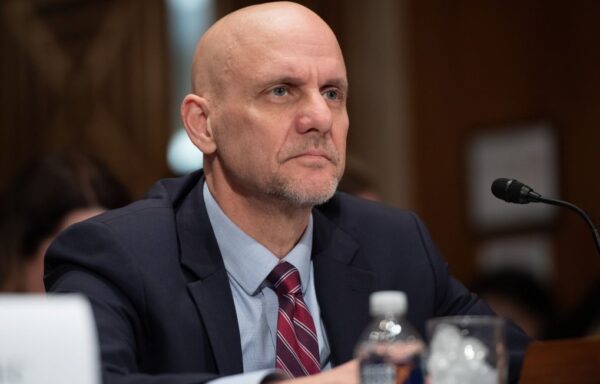
A week after raising eyebrows with his actions surrounding the emergency use authorization of convalescent plasma for Covid-19, Food and Drug Administration Commissioner Stephen Hahn has prompted further consternation.
In an interview with The Financial Times Sunday, Hahn said the agency was prepared to authorize a vaccine against SARS-CoV-2, the virus that causes Covid-19, before the end of Phase III clinical trials, though he insisted it would be a decision based on scientific rather than political considerations. The FT article was published the day after the agency removed its spokesperson, Emily Miller, who formerly worked for Sen. Ted Cruz, R-Texas, and One America News. She was removed after serving only 11 days. It has been reported that she will remain at the FDA, but it is uncertain in what role.
“It is up to the sponsor to apply for authorization or approval, and we make an adjudication of their application,” Hahn told the newspaper. “If they do that before the end of Phase III, we may find that appropriate. We may find that inappropriate, we will make a determination.”
The comments were met with strong criticism.
In a tweet Sunday, Scripps Research Translational Institute founder Dr. Eric Topol pointed out, as the FT article did, that only two countries have approved SARS-CoV-2 vaccines without clear evidence of safety and efficacy, namely Russia and China.
“Now [Hahn] has made it clear he intends US will be the 3rd. The man with no credibility saying that it isn’t related to Trump’s reelection,” Topol wrote. Accusing Hahn of “subservience to Trump,” Topol wrote that any vaccine’s safety and efficacy will not be known for many months after the trials achieve full enrollment.
At any rate, former FDA Commissioner Dr. Scott Gottlieb said in an interview with CBS’ “Face the Nation” that unless a vaccine proved to be “very effective,” it was unlikely that a data readout would occur before November because it was based on the respective numbers of people in the study and control arms of the randomized trials who became infected. “I don’t know what is meant by saying ‘before Phase III trials are completed,’” Gottlieb said. “A full approval for the general population, where people can go to CVS and get a shot, that’s really a 2021 event.”
An EUA for a vaccine would likely be limited to certain populations, such as the elderly or healthcare workers, and would occur in a step-wise fashion, Gottlieb said.
Hahn was criticized last weekend amid criticism of the agency’s decision to grant an emergency use authorization for convalescent plasma as a Covid-19 treatment. The decision came shortly after the agency had decided not to grant an EUA, but was not accompanied by additional data or a new analysis of existing data. And its timing, the day after Trump baselessly stated a “deep state” within the FDA was dragging its heals on approving a vaccine in order to hurt his reelection chances – an accusation against which Hahn did not defend agency staffers – and the day before the start of the Republican National Convention led to accusations that the EUA was politically motivated. Adding fuel to the fire was Hahn’s misstatement that the treatment would have saved the lives of 35 out of 100 patients, a claim that was repeated on the FDA’s Twitter feed. Miller said criticism of those remarks was “justified.”
Photo: Saul Loeb, AFP, via Getty Images










